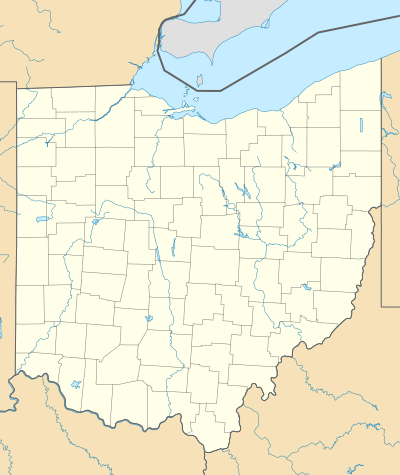University System of Ohio
| Type | Public university system |
|---|---|
| Established | 2007 |
| Endowment | $4.65 billion |
| Chancellor | Mike Duffey |
Academic staff | 34,465 (2019)[1] |
Administrative staff | 59,629 (2019)[1] |
| Students | 429,310 (Fall 2024)[2] |
| Location | , , United States |
| Website | highered |
The University System of Ohio is the public university system of the U.S. state of Ohio. It is governed by the Ohio Department of Higher Education.
Unlike other state university systems outside Ohio such as the University of California System, Ohio's university system operates without blanket names of its members or flagship institutions. Instead, each member markets itself along its own perceived excellences.
The system includes all of Ohio's public institutions of higher education: 14 four-year research universities, 24 branch and regional campuses, 23 community colleges and technical colleges, and 13 graduate schools, seven medical schools, six law schools, and ten business schools within campuses. Additionally, some campuses offer Adult Workforce Education (AWE) and Adult Basic and Literacy Education (ABLE) programs. The AWE and ABLE programs were transferred from the Ohio Department of Education to the Ohio Board of Regents in 2009 to provide a flexible system of higher education that will improve services while reducing costs to students. The total annual enrollment of University System of Ohio institutions was over 526,003 as of 2020.[2]
History
[edit]The University System of Ohio was unified under Governor Ted Strickland in 2007.[3] In 2008, Chancellor Eric Fingerhut proposed creating common academic calendars for all of the system's universities: the goal was to simplify transfer between institutions and allow students to be recruited at the same time for jobs and internships.[4] After spending more than $26 million starting in 2008, the transition was completed by the 2012 academic year.[5]
Colleges and universities
[edit]University main campuses
[edit]University regional campuses
[edit]Central State, Cleveland State, NEOMED, Shawnee State, Toledo, and Youngstown State do not have regional campuses, although Youngstown State is considering a satellite campus in Steubenville, Ohio due to financial difficulties with Eastern Gateway Community College.[6]
- Bowling Green State University
- Kent State University
- Miami University
- Ohio University
- Ohio State University
- University of Akron
- Medina County University Center
- University of Akron Wayne College
- University of Akron Lakewood
- University of Cincinnati
- Wright State University
Community and technical colleges
[edit]- Belmont College — St. Clairsville and Cadiz
- Central Ohio Technical College — Newark
- Cincinnati State Technical and Community College — Cincinnati
- Clark State College — Springfield, Beavercreek, and Bellefontaine
- Columbus State Community College — Columbus
- Cuyahoga Community College — Cleveland
- Edison State Community College — Piqua
- Hocking College — Nelsonville
- Lakeland Community College — Kirtland
- Lorain County Community College — Elyria
- Marion Technical College — Marion
- North Central State College — Mansfield
- Northwest State Community College — Archbold
- Owens Community College — Toledo and Findlay
- Rhodes State College — Lima
- University of Rio Grande - Rio Grande
- Sinclair Community College — Dayton and Mason
- Southern State Community College — Hillsboro and Mount Orab
- Stark State College — North Canton,Akron
- Terra State Community College — Fremont
- Washington State College of Ohio — Marietta
- Zane State College — Zanesville
See also
[edit]References
[edit]- ^ a b "Employees by Appointment Status and Work Category, Fall 2019" (PDF). Ohio Department of Higher Education. p. 4. Retrieved April 26, 2021.
- ^ a b Preliminary Headcount (Fall 2024). Retrieved 2024-11-01.
- ^ Niquette, Mark (August 3, 2007). "Governor unifies higher ed". The Columbus Dispatch. Retrieved April 26, 2021.
- ^ "Colleges spend millions to switch to semesters". Dayton Daily News. March 30, 2012. Retrieved April 1, 2012.
- ^ "17 Ohio schools switching to semesters". The Blade (Toledo, Ohio). April 2, 2012. Retrieved April 30, 2019.
- ^ "Eastern Gateway working with YSU, area community colleges for students to continue education".
External links
[edit]- Home page and Strategic plan for the University System of Ohio

